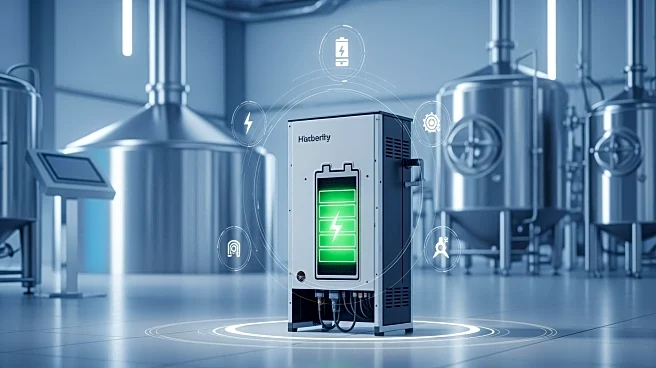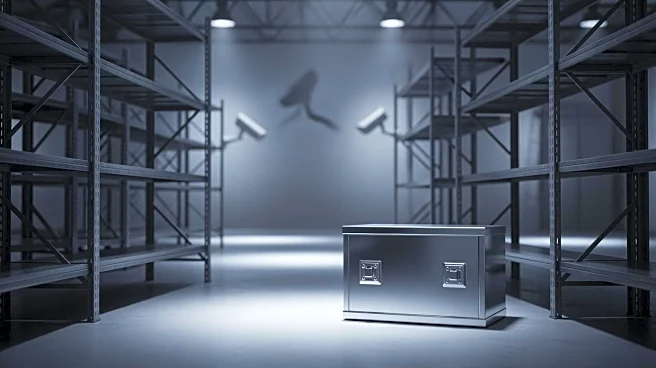What's Happening?
HEINEKEN, in collaboration with EDP Comercial and Rondo Energy, is set to deploy a 100 megawatt-hour Rondo Heat Battery system at its Vialonga Brewery near Lisbon. This initiative marks one of the largest industrial-scale heat battery installations in Europe
and the first in the beverage industry. The system will utilize renewable electricity from a 7 MW on-site solar installation and a long-term renewable grid supply to generate steam for brewing operations, thereby eliminating the need for fossil fuels. EDP Comercial will manage the system under a Heat-as-a-Service model, allowing HEINEKEN to purchase low-carbon steam without owning the infrastructure. This project supports HEINEKEN's goal to achieve net-zero emissions by 2040.
Why It's Important?
The deployment of the Rondo Heat Battery system is significant as it represents a major step towards decarbonizing industrial processes, particularly in energy-intensive sectors like brewing. By reducing reliance on fossil fuels, HEINEKEN not only aims to cut carbon emissions but also to protect its operations from energy market volatility. This initiative aligns with broader EU goals to phase out fossil fuels in industrial heat, which constitutes a significant portion of energy consumption. The project serves as a model for other industries seeking to integrate renewable heat solutions, potentially influencing sectors such as food and beverage, pulp and paper, and chemicals.
What's Next?
The Vialonga heat battery project is scheduled to be operational by April 2027. Its success could lead to wider adoption of similar heat storage solutions across various industries. As carbon pricing and regulatory frameworks tighten under the EU Green Deal, more corporations may pursue similar projects to meet sustainability targets. The collaboration between HEINEKEN, EDP, and Rondo Energy could pave the way for future partnerships aimed at achieving industrial decarbonization.
Beyond the Headlines
This project highlights a shift from incremental efficiency improvements to systemic changes in industrial energy use. By adopting a Heat-as-a-Service model, HEINEKEN reduces operational complexity and gains predictable energy costs, showcasing a practical approach to sustainability. The initiative also reflects the growing importance of partnerships in achieving environmental goals, demonstrating how collaboration can drive innovation and efficiency in supply chains.















